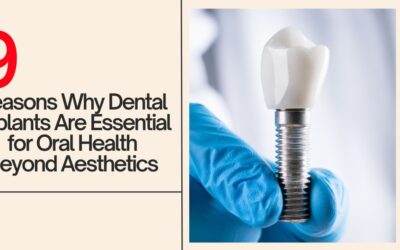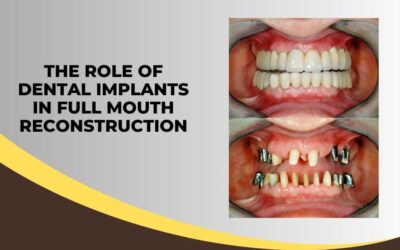Sometimes root canal treatment cannot be performed to salvage a damaged tooth. Dental implants, on the other hand, have transformed the area of restorative dentistry by offering patients a dependable and aesthetically acceptable method to replace a damaged tooth by removing it and placing an implant in its place. Certain oral problems, such as Teeth Grinding, also called bruxism, can, however, impact the long-term viability of dental implants. In this blog post, we will look at the connection between dental implants and bruxism, as well as ways for dealing with it.
The Impact of Teeth Grinding on Dental Implants
Bruxism can negatively impact the success of dental implants in a few ways:
- Excessive Force: Teeth grinding causes excessive biting forces on the implants and adjacent structures. This increased pressure may cause implant deterioration, resulting in implant failure or consequences.
- Prosthesis Wear: The continual grinding and clenching associated with bruxism can result in accelerated wear and tear on dental prostheses, such as crowns or bridges attached to implants. This may need the replacement of a prosthesis too soon.
- Bruxism has been linked to bone loss surrounding dental implants, a condition known as peri-implantitis. Excessive force due to teeth grinding can cause inflammation and bone resorption, impacting the stability and durability of the implants.
Mitigating the Impact of Bruxism on Dental Implants
Although teeth grinding poses challenges, there are effective strategies to mitigate its impact on dental implants:
- Wearing an occlusal guard, commonly known as a night guard or splint, can help protect both natural teeth and dental implants from the detrimental effects of bruxism. The guard functions as a cushion, absorbing the forces produced by grinding and clenching, lowering the risk of implant-related problems.
- Bite Adjustment: A dentist may conduct selective occlusion (bite) adjustments in some circumstances to distribute forces more equally across the teeth and implants. This can help relieve pressure on specific places and reduce the impact of teeth grinding.
- Stress Management: Because stress is a common cause of teeth grinding, stress management measures such as meditation, exercise, and relaxation exercises can help prevent teeth grinding episodes and protect dental implants.
- Maintaining frequent dental check-ups is critical for maintaining the health of dental implants and discovering any problems early on. Dentists can analyse the impact of teeth grinding, make necessary changes, and treat any issues that emerge.
Dental implants provide a dependable and long-lasting method for tooth replacement, but their long-term success needs to be ensured. Patients can protect the durability and success of their dental implants by knowing the impact of teeth grinding and implementing techniques to limit its consequences by closely working with their dentists. Get dental implants and enjoy your restored smiles for years to come.




